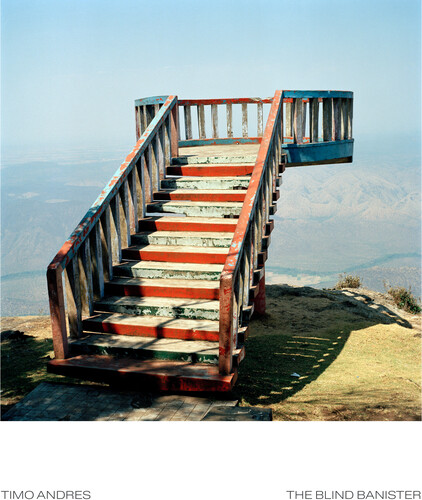Show results for
Deals
- 4K Ultra HD Sale
- Action Sale
- Alternative Rock Sale
- Anime sale
- Award Winners Sale
- Bear Family Sale
- Blu ray Sale
- Blues on Sale
- British Sale
- Classical Music Sale
- Comedy Music Sale
- Comedy Sale
- Country Sale
- Criterion Sale
- Electronic Music sale
- Fantasy Film and TV
- Folk Music Sale
- Hard Rock and Metal Sale
- Horror Sci fi Sale
- Jazz Sale
- Kids and Family Music sale
- Kids and Family Sale
- Metal Sale
- Music Video Sale
- Musicals on Sale
- Mystery Sale
- Naxos Label Sale
- Olive Films on Sale
- Page to Screen Sale
- Paramount Sale
- Pop and Power Pop
- Rap and Hip Hop Sale
- Reggae Sale
- Rock and Pop Sale
- Rock Legends
- Soul Music Sale
- TV Sale
- TV Sale
- Vinyl on Sale
- War Films and Westerns on Sale

Timo Andres: The Blind Banister
- Format: CD
- Release Date: 3/22/2024

Timo Andres: The Blind Banister
- Format: CD
- Release Date: 3/22/2024
- Performers: Metropolis Ensemble
- Label: Nonesuch
- UPC: 075597899894
- Item #: 2622086X
- Genre: Classical
- Release Date: 3/22/2024

Product Notes
The album comprises three works by Andres: the composer's third piano concerto, The Blind Banister, with Andres as soloist, and Upstate Obscura for chamber orchestra and cello, with soloist Inbal Segev both of which feature Metropolis Ensemble and conductor Andrew Cyr and the solo piano piece Colorful History, also performed by the composer. The Blind Banister was written for pianist Jonathan Biss to be performed alongside Beethoven's second concerto. Andres says, My piece is not a pastiche or an exercise in palimpsest. It doesn't quote or reference Beethoven. There are some surface similarities to his concerto (a three-movement structure, a B-flat tonal center) but these are mostly red herrings. The best way I can describe my approach to writing the piece is: I started writing my own cadenza to Beethoven's concerto, and ended up devouring it from the inside out. The piece was a finalist for the Pulitzer Prize in 2016. Upstate Obscura takes it's inspiration from American painter John Vanderlyn's Panoramic View of the Palace and Gardens of Versailles. Andres says, In taking on a quintessentially French subject, Vanderlyn somehow came up with something that feels American; it seems to regard Versailles at a bemused distance, with that characteristically American distrust of anything unnecessarily fanciful. My plan was to start with fragments of musical ornament from the French Baroque tradition like loose chunks of masonry and stretch them out until they no longer felt like ornaments... The solo cello moves just as a viewer might explore a virtual world at times wandering, at times with purpose. Andres describes the album's solo piano work: Colorful History is a chaconne, stemming from a single augmented triad, and following the course of various directions it suggests. I think of this as a kind of extended metaphor for historical events, and how they echo each other without literally repeating.

